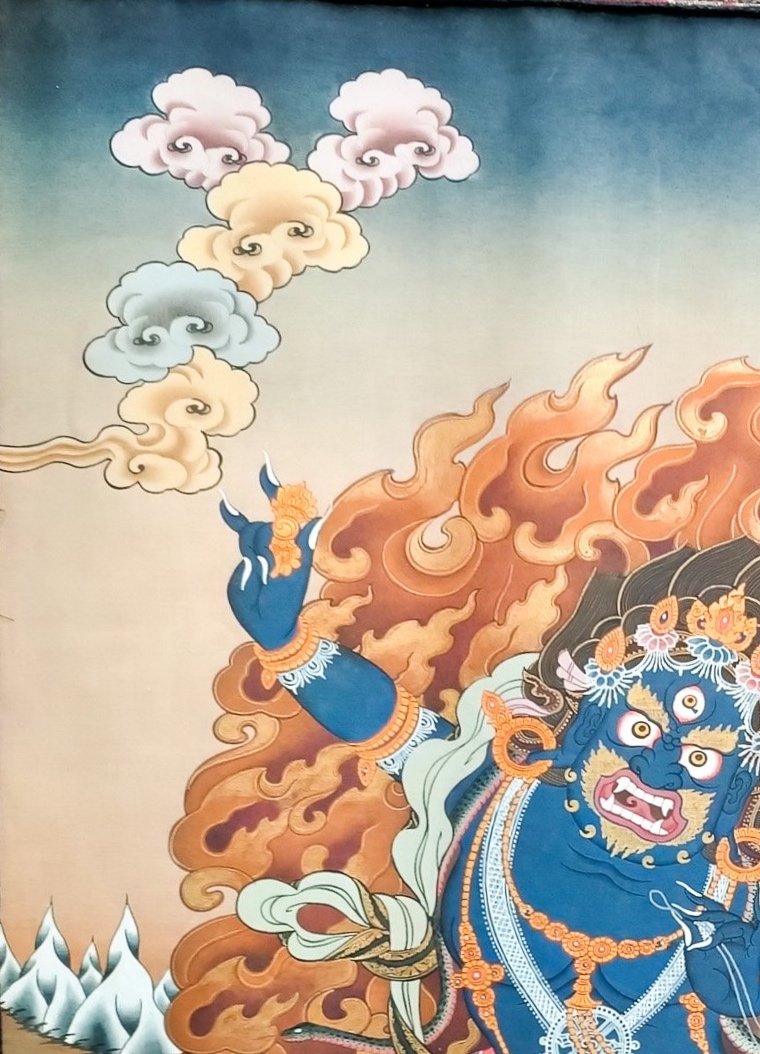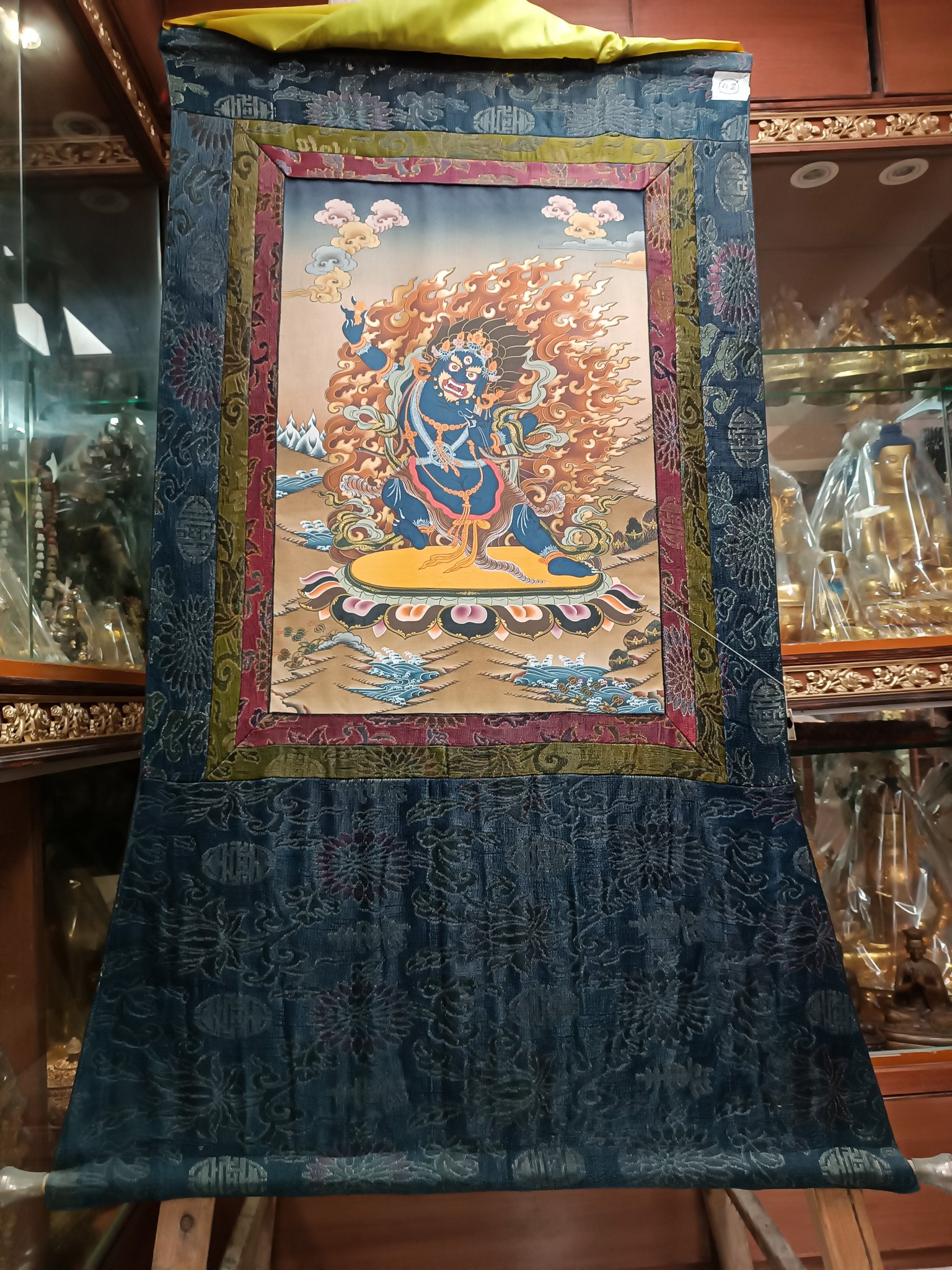 Image 1 of 4
Image 1 of 4

 Image 2 of 4
Image 2 of 4

 Image 3 of 4
Image 3 of 4

 Image 4 of 4
Image 4 of 4





Vajrapani; ཕྱག་ན་རྡོ་རྗེ་; 金剛手菩薩
Vjara pani, known as the “Indestructible Hand of Buddha,” plays a significant role as a protector of Buddhist teachings, countering the pride of Brahmins. Early sutras depict him primarily as a yakṣa, a semi-divine being with ambiguous intentions, serving as Buddha Śākyamuni’s bodyguard. He is sometimes identified with Śakra and can manifest as a crowd of vajra-wielding non-human beings to safeguard the Buddha.
Hand-painted in Nepal.
The Natural Pigment Painting measures 24 inches X 18 inches with an additional silk Thangka bordering it.
Vjara pani, known as the “Indestructible Hand of Buddha,” plays a significant role as a protector of Buddhist teachings, countering the pride of Brahmins. Early sutras depict him primarily as a yakṣa, a semi-divine being with ambiguous intentions, serving as Buddha Śākyamuni’s bodyguard. He is sometimes identified with Śakra and can manifest as a crowd of vajra-wielding non-human beings to safeguard the Buddha.
Hand-painted in Nepal.
The Natural Pigment Painting measures 24 inches X 18 inches with an additional silk Thangka bordering it.
Vjara pani, known as the “Indestructible Hand of Buddha,” plays a significant role as a protector of Buddhist teachings, countering the pride of Brahmins. Early sutras depict him primarily as a yakṣa, a semi-divine being with ambiguous intentions, serving as Buddha Śākyamuni’s bodyguard. He is sometimes identified with Śakra and can manifest as a crowd of vajra-wielding non-human beings to safeguard the Buddha.
Hand-painted in Nepal.
The Natural Pigment Painting measures 24 inches X 18 inches with an additional silk Thangka bordering it.